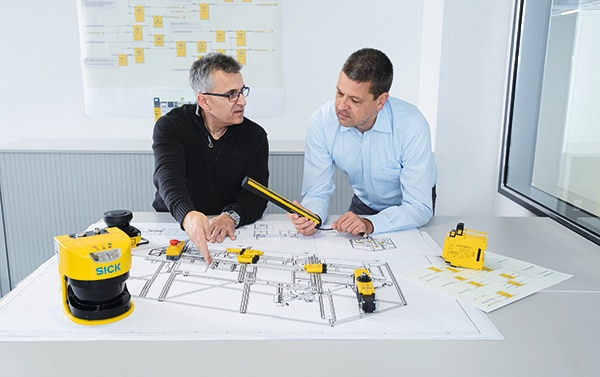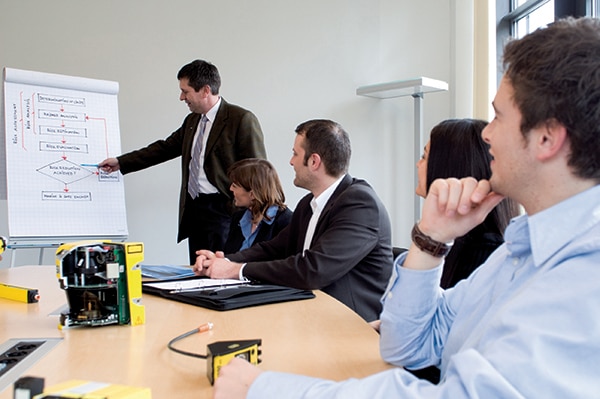Even at the development and design stage of a machine, it is important to consider how it will ensure safety - all too often, accidents are the result of a failure to carry out adequate risk assessments in advance. When implementing and commissioning a machine, residual risks can be avoided by installing additional safety technology. Ultimately, the safety of machinery depends on the safety system operating correctly as well as other risk-reducing measures. This is where functional safety comes in. SICK offers the Functional Safety Engineer (TÜV Rheinland) training, designed to provide developers, designers, and operating entities with training in the field of functional safety and help them learn about the ways in which machine safety can be guaranteed.

SICK is a recognized course provider under the TÜV Rheinland Functional Safety Training Program. The qualified trainers from SICK appointed by TÜV Rheinland, are experts who are able to provide information on a combination of the necessary theoretical knowledge and the on-site requirements that apply in practice. They also possess - and can demonstrate - at least ten years of experience in the field of functional safety. SICKs training enables engineers, designers, companies working with functional safety, and other parties who have an interest in this field to be trained in the subject and enhance their specialist knowledge of it, up to the level of the internationally recognized FS Engineer qualification. Training can be delivered at a SICK subsidiary or at the customers premises, and plans are in place to offer the seminar in both English and Spanish in future. This will give companies operating in other regions of the world the opportunity to acquire knowledge about the safety-related requirements and guidelines that apply in the European Union, making it easier for them to comply with goods export specifications.

A comprehensive Agenda
SICKs training looks at risk assessment and risk reduction, machine safety, as well as functional safety on machines. A range of protective equipment - such as fences and electrosensitive protective devices as well as safety-related software - is presented as a toolkit that can be used for reducing risks. The program also addresses potential ways in which protective devices can be positioned. As well as this, participants learn about requirements for developing safety-related control systems, including principles for verifying and validating safety functions, on the basis of the following standards: EN ISO 12100 (Safety of machinery - General principles for design - Risk assessment and risk reduction), EN ISO 13849 (Safety of machinery - Safety-related parts of control systems), and EN/IEC 62061 (Safety of machinery - Functional safety of safety-related electrical, electronic and programmable electronic control systems). The SICK trainers provide in-depth examples from practice as well as tried-and-tested expert tips in areas such as documentation and functional safety management. They also provide support when it comes to implementing the European Work equipment directive for manufacturers. Other subjects addressed during the training program are based on the EN/IEC 61508 standard (Functional safety of electrical/electronic/programmable electronic safety-related systems) and the Machinery Directive.
Expert qualification through the FS Engineer (TÜV Rheinland) certificate
All participants in the seminar receive detailed training documents and, at the end, have the option of taking an examination concerning the issue of functional safety. Those who are successful are then awarded the globally recognized FS Engineer (TÜV Rheinland) certificate.

